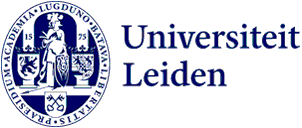
‘At first I didn’t understand anything, now I can explain it’
Engineering, law, and business students came together in the LDE Space & Society Honours Programme to explore how space and society can mutually benefit each other. At the final event, they looked back upon a steep learning curve. ‘We tossed them into the water and they had to swim.’
The final event of the LDE Space & Society Honours Programme, on 25 June in Delft, has an informal yet focused atmosphere. As the auditorium fills, small groups of students gather around standing tables. Most chat with a drink in hand; others pull out their laptops for some final tweaks. This evening, seven student teams present the results of their Space Challenge, in which they tackle questions inspired by real-world developments in the sector.
About this honours programme
The LDE Space & Society Honours Programme is a one-year extracurricular programme for bachelor’s students from Leiden University, TU Delft, and Erasmus University Rotterdam. Students from all disciplines are welcome: from law to psychology, and from physics to philosophy. Together, they explore the diverse dimensions of the space sector and tackle a real-world challenge from the field. This academic year marked the launch of the very first edition.
The fact that they all stand here today is an achievement in itself. Some students had never heard of satellite orbits or the Outer Space Treaty before joining the programme. ‘At first, I didn’t understand anything the engineers were saying,’ says Shefali, an economics student at Erasmus University. ‘But now, when I listen to other people’s presentations, I actually understand what they’re talking about and I can explain it myself.’
Pushed out of their comfort zones
Collaborating across disciplines proved to be both challenging and eye-opening. ‘When we're presenting, our audience usually exists of other engineers,’ says Max. He and his teammate Tom study Aerospace Engineering at TU Delft. ‘We had to tone down the technical level a lot more than I expected.’ Economist Shefali: ‘Sometimes we would get in conflict during the project because we all wanted a different point of focus, and we had to work through that.’
Pushing students out of their comfort zones - and explore new areas of knowledge - is precisely the point of the programme, says Dimitra Stefoudi, assistant professor in space law and coordinator of the programme. ‘We tossed them into the water and they had to swim. But I think they did very well.’
-
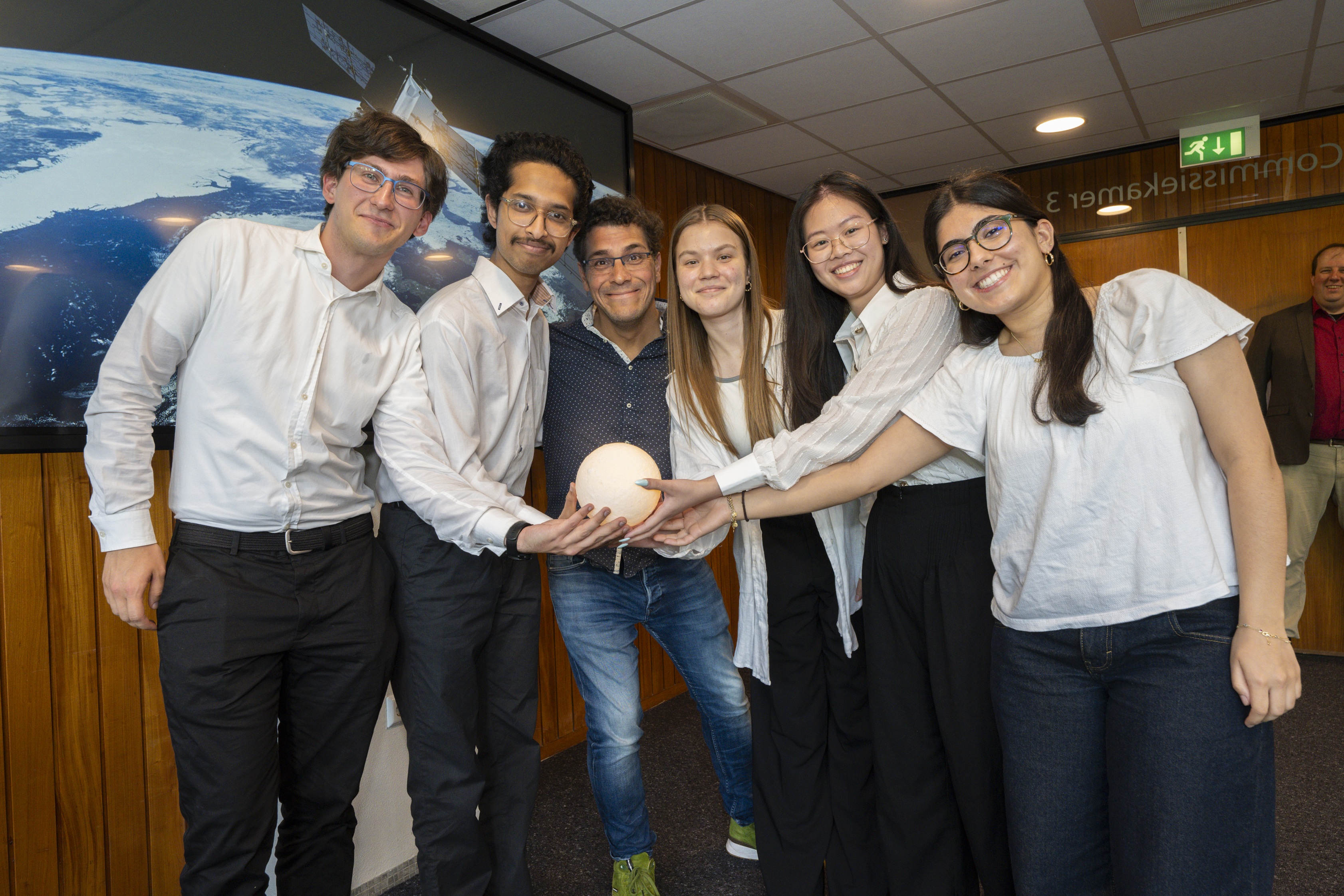
Teams presenting their projects at the LDE Space & Society Final Event -
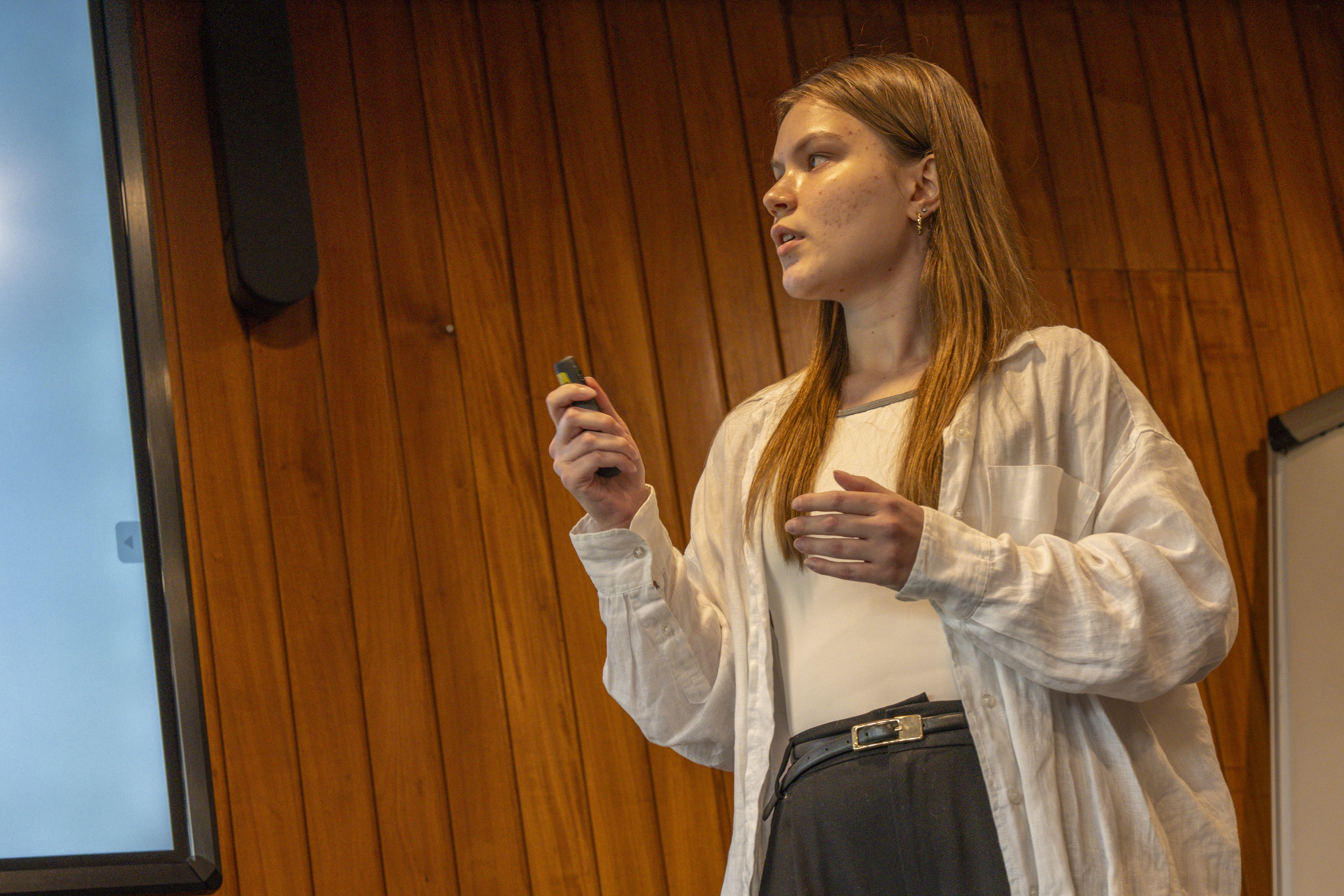
Teams presenting their projects at the LDE Space & Society Final Event -
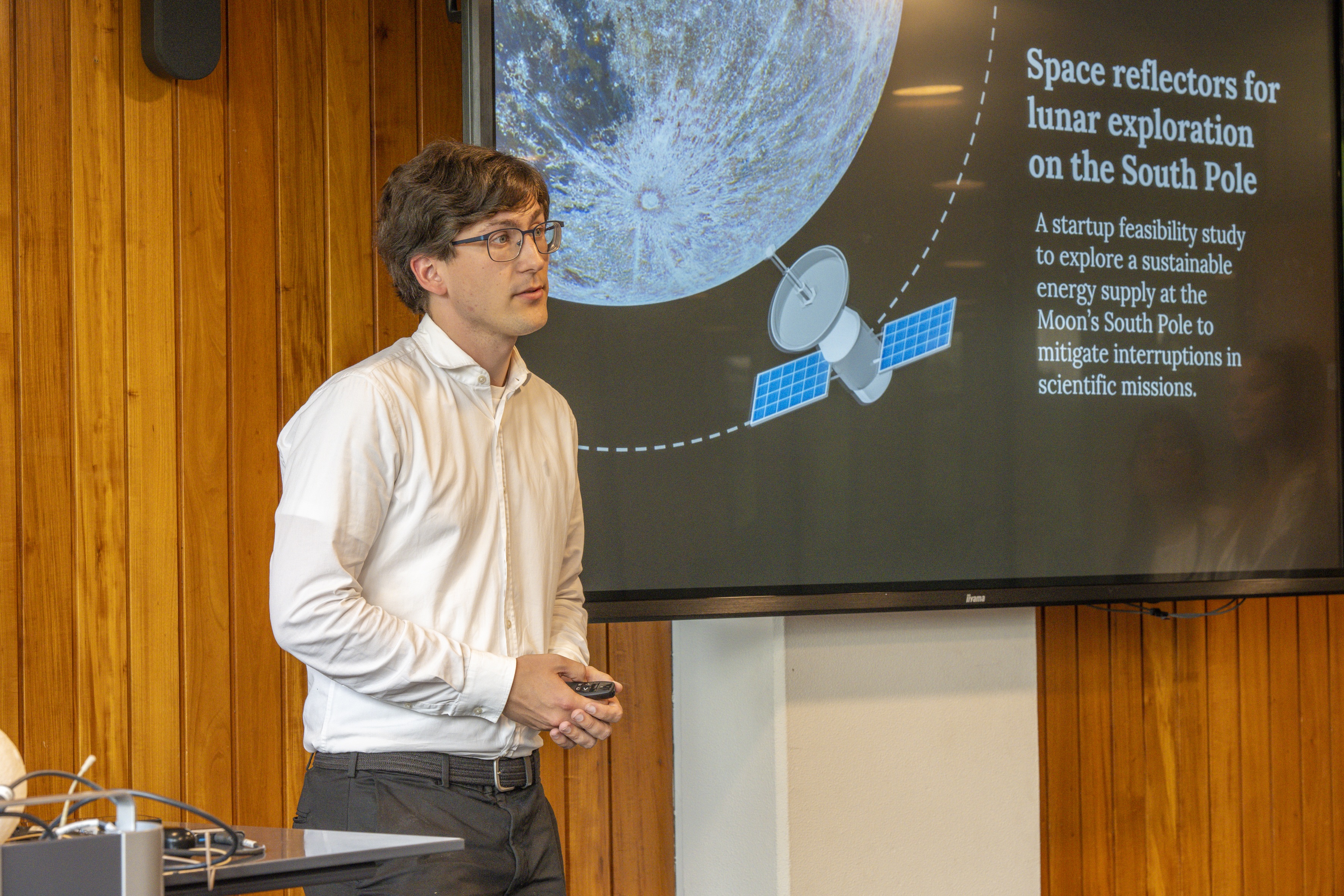
Teams presenting their projects at the LDE Space & Society Final Event -
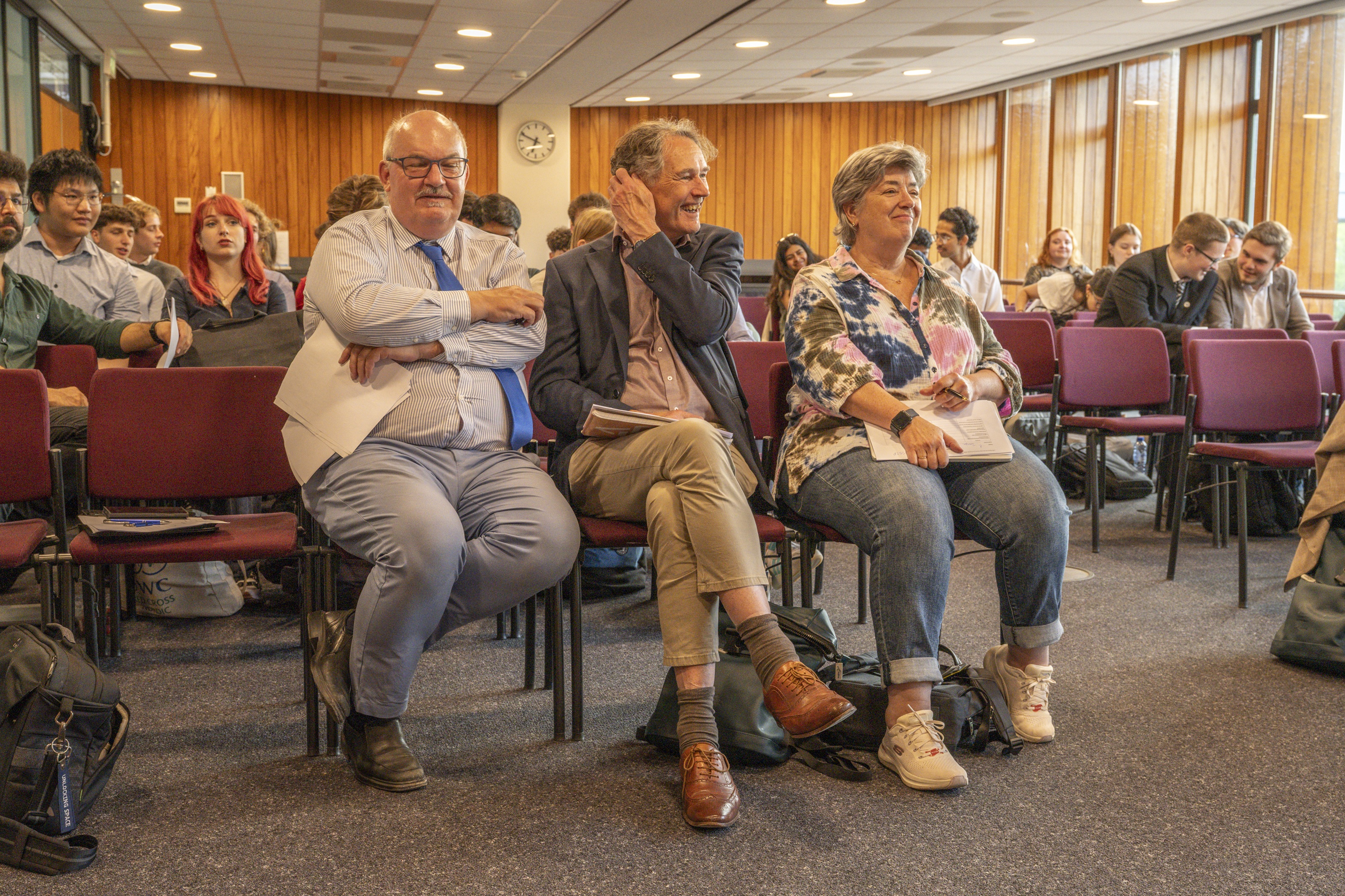
Teams presenting their projects at the LDE Space & Society Final Event -
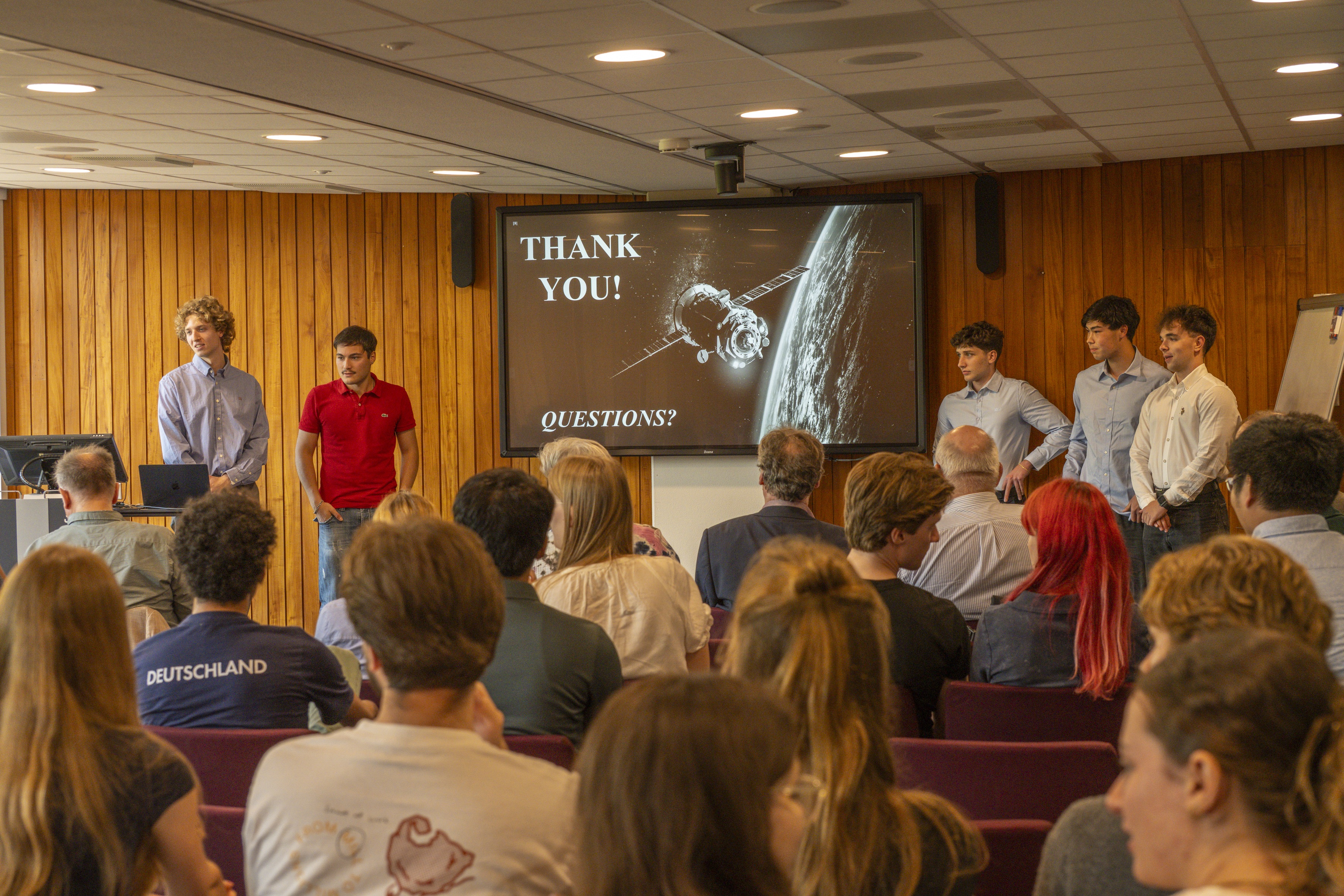
Teams presenting their projects at the LDE Space & Society Final Event
From solar mirrors to stem cells
The first phase of the honours programme offered lectures on various dimensions of the space sector, ranging from technological aspects to business and innovation, and from space applications to law and governance. Outside the classroom, students deepened their knowledge with an excursion to Airbus, the EU Agency for the Space Programme (EUSPA), and the European Space Agency (ESA). ‘It really brought the students from the classroom to where it is actually happening,’ Stefoudi says.
From mid-March onwards, students worked in teams on a self-defined ‘challenge’ based on real-world space applications. Their final presentations show the wide range of topics explored.
One of the teams proposes an open-source satellite system to track space debris, while another investigates the feasibility of growing stem cells in microgravity for advanced medical therapies.
Business student Ruxin and her team explored whether solar energy could be generated using reflectors on the moon. ‘Our first idea was too broad. An expert from another group told us we might want to focus on sunlight-reflecting technology,’ she explains. For Ruxin, working in a team was the most valuable aspect of the honours programme: ‘That was where the real fun started.’
‘A strong first edition’
With 40 students, seven teams, and seven tightly timed presentations, Stefoudi looks back positively on the programme’s first year. ‘It was a positive experience. And it was a very good collaboration between the three universities, both among students and instructors.’
René Olie, associate professor at Erasmus University, also expressed his appreciation for the final result. He finds the presentations inspiring: ‘Even as a teacher, I learned a lot from them. I am impressed by the insights and solutions students came up with.’
A second edition of LDE Space & Society Honours is already in the works, with improvements for the next generation. ‘We gave a lot of feedback,’ says Jenny (International Studies). ‘Of course, there were some hiccups, but I see a lot of potential. I’m very curious to see what they’ll do next year.’

